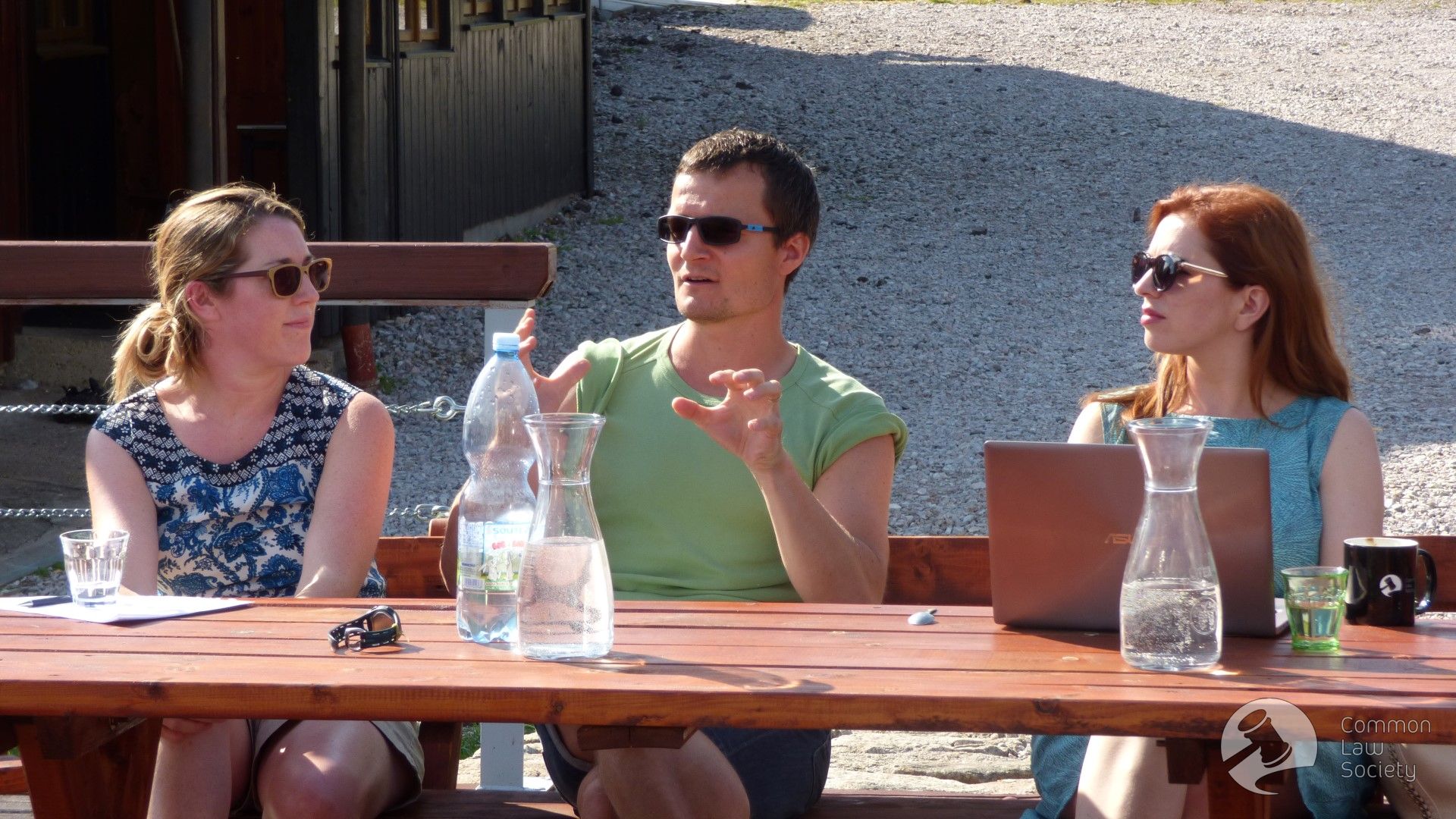The second morning class of the summer school's opening day was given by Jan Komárek from the LSE, our long-standing programme director and a person right at the heart of this project. Jan opened his specialisation course ("Critical Perspectives on Human Rights") with a lecture dedicated to the history and foundations of human rights. Looking at an article by Christopher McCrudden, we discussed a book by Samuel Moyn: "The Last Utopia: Human Rights in History". While Moyn locates the origins of fundamental rights to the 1970's, McCrudden challenges this thesis, arguing that human rights in fact evolved as a product of the Enligthenment and the French and American Revolution. Whose side would you take?

In his second talk, Jan was ‘orbiting’ around the relation between freedoms and rights. We quickly concluded that the concept of freedom is meaningless without any account of equality. Having freedom is not equivalent to having a choice, but rather to having a choice in egalitarian conditions. Subsequently, we discussed about the conflict between universality and particularity of human rights. While some students defended a certain minimum level of human rights that should be universally recognised, others rejected this position, claiming that the cultural differences are too major to allow for a universal conception of human rights. Some students even argued that the enforcement of Western liberal values in the rest of the world is wrong, based on nothing but a false consciousness (as Marx would put it). Jan subsequently offered an argument that if human rights are presented as anti-political, they can no longer be used as reasons for political action. The rest of the lecture then focused on Joseph Raz’s theory of human rights and the legal positivist conception of human rights.
A specialisation course does not deserve to be called “Critical Perspectives” if it’s not actually critical. With that in mind, Jan Komarek delivered his final lecture, critically discussing the neoliberal foundations of the EU, in the context of human rights protection. For those not yet familiar with the political foundations of these ideas, neoliberalism is typical for its scepticism towards states and collective economic choices, giving preference to the market and its invisible hand. Jan pointed out that the rise of neoliberalism appeared in the 1970’s - the very same period that was described in Moyn’s book as typical for its massive advance of human rights. Is this a coincidence or are these two things somehow connected? To answer this question, we looked into the discussion between Moyn and Susanne Marks. At this point, everyone was eager to discuss the relationship between neoliberalism and democracy. Does democracy depend on free market? Can market freedom undermine democracy? And is our freedom of choice constrained by free market economy?

Jan then returned to the questions of rights adjudication. Do (international) courts have the necessary legitimacy to protect fundamental rights? Jan rightly pointed out that there is a difference between descriptive legitimacy, based on simple sociological research, and normative legitimacy, defined by one’s normative criteria. We looked into Kelsen’s claim that courts should not decide on moral issues, including human rights. One of the students asked: Shouldn’t wee perceive the human rights provisions as positive legal norms, since they are embedded in the Convention and elsewhere? In response to this question, Kelsen would probably say: “You cannot positivise this!” (at least so says Jan).
What were you thoughts on Jan's course? Do you agree with his opinions on the concept of human rights?


CommentsTell us your opinion...